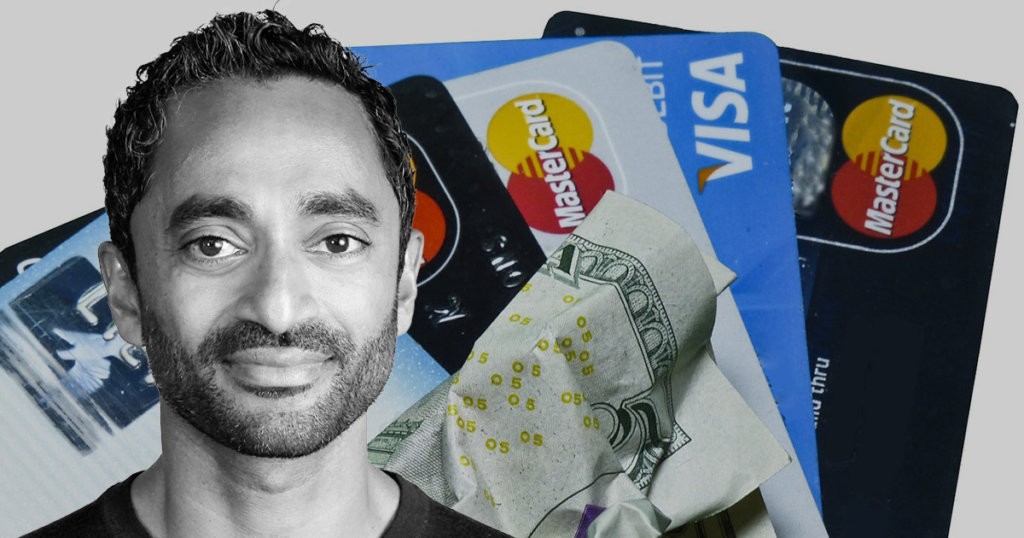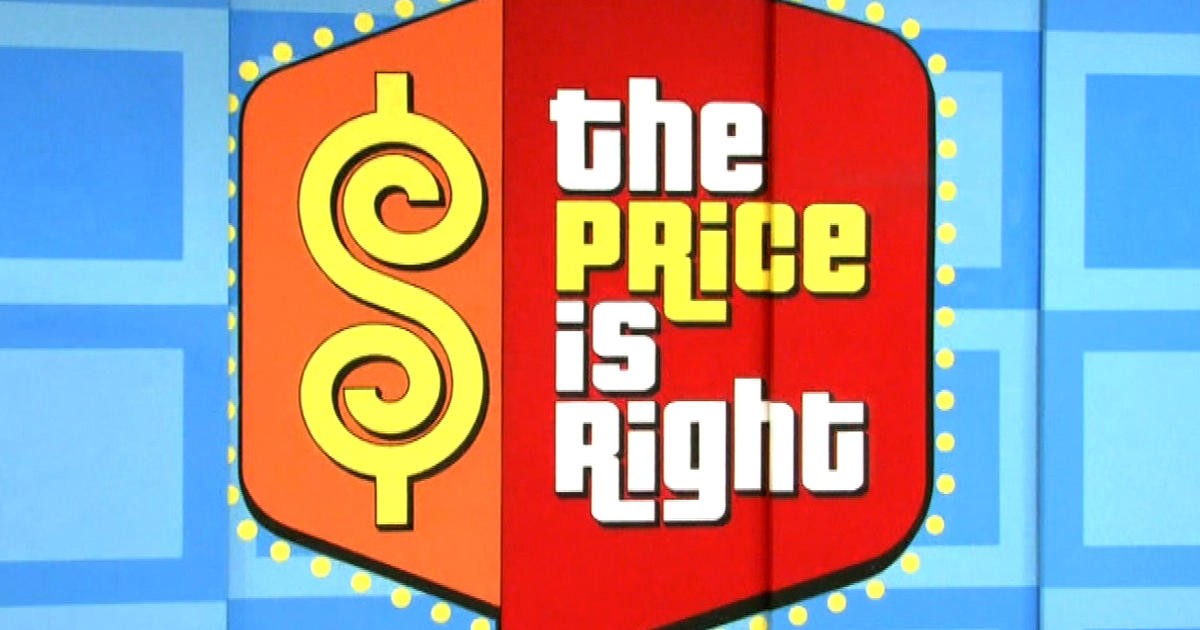Category: Financial Technology
PayModum CEO announces ‘huge step’ as firm that started in his bedroom opens first office in Malta
CEO and Founder of PayModum, Jake Dovey, announced that his UK-based business is expanding to Malta.
Writing on LinkedIn, Mr Dovey stated that nearly four years since he founded the company in London, he is expanding his office space to the islands.
“This represents a huge step in our evolution, having originally started the business from my bedroom,” he said.
PayModum is an online payments company, founded with the aim of helping merchants with payments. “We realised that there needed to be an interface and partner network to help enable multiple markets,” the company explains on its website.
“The business helps online merchants process Visa, MasterCard and other payment methods globally. It specialises in increasing acceptance rates, enabling new markets and driving conversion,” Mr Dovey explains on his LinkedIn profile.
Today, the company works with more than 130 payment partners globally.
Mr Dovey thanked the company’s partners and customers. Additionally, he remarked that the space is large enough for four desks.
“We’ll see how quickly we grow into the next space,” he concluded.
Original Source: https://maltaceos.mt/paymodum-ceo-announces-huge-step-as-firm-started-in-his-bedroom-opens-first-office-in-malta/
Is Chamath right about VISA and MasterCard?
Recently I was listening to Chamath Palihapitya on the ‘All-In’ podcast where he discusses the future and landscape of the card scheme giants VISA and MasterCard. His comments included; VISA and MasterCard will be the biggest losers of 2022 and that DeFi Web 3.0 protocols will very quickly replace existing financial infrastructures over the next 10 years.
Whilst we pause to digest such thought processes and comments, we need to first introduce him. Chamath is most famous (and admired) for his work at Facebook from 2007-2011, where he was credited primarily for helping grow Facebook to over 1 billion users. Since leaving Facebook, he founded Social Capital, a venture capital firm. In which time he has gained notoriety as an early investor in cryptocurrency, long on Tesla (although recently selling his position) and credited for leading the wave of SPAC’s (special purpose acquisition company) that have been IPO’ing to a varying degree of success and scepticism.
Whilst Chamath makes a reasoned argument towards the degradation of existing financial systems and the emergence of decentralised systems, the bigger picture is that the world already has changed and many of the frameworks/solutions already exist for those wishing to enable blockchain protocols. They have done for over 10 years and such ‘solutions’ have been serving a highly unregulated network such as the Silk Road (online black market place), non-legal means of financial access (think terrorist financing, theft of personal data and human trafficking) and a retail market of ‘investors’ predominantly buying into price increase of such digital ‘assets’. Those wishing to pay by crypto in the grocery store and via online eCommerce storefront remain mostly absent for the majority of global citizens who pay tax and earn an honest living wishing to spend their money in the freest and most ubiquitous way possible.
The defi whitepapers that Chamath mentions, for the most part, have been created by companies wishing to validate themselves in a space that lacks validity, providing an oversimplified vision of the existing systems that they claim to replace. In short, whitepapers are great at explaining a concept or idea, but often forget the real-world application to the end-user. In the world of science and technology, an example of this would be that of machine learning, first coined in 1959 by Arthur Samuel and the roots of such work can be found far earlier. My point being is those good ideas, take an awfully long time to resonate and the right technological and political environments need to also exist for such widespread adoption. Something that currently does not exist, despite the widespread printing of Fiat money globally and huge government deficits that have primed many crypto advocates into such adoption and investment.
A real-world problem that defi claims to solve is that blockchain is far superior for P2P (peer to peer) transactions. When in reality Fiat transactions happen in seconds in many countries such as the UK, Europe, China etc. My bank issued VISA card transacts and debits/settles almost instantly via the merchant acquirer, issuer and merchant, while my FIAT money is backed by the tax I pay to support such deficits that are run by the central banking system. In comparison, it takes minutes (sometimes hours) to transfer cryptocurrencies, particularly that of BTC and usually at a far higher cost.
Whilst crypto and defi do provide some benefit, particularly around the reduction of potential operational costs a far more transparent and regulated system needs to exist if end users are to trust such alternatives. And whilst people are becoming increasingly tech-savvy, asking someone like my mother to make payment via a crypto wallet is frankly laughable (sorry Mum). His background in social media/search; think Facebook/Google has done him a serious disservice as such companies have been successful because they operate with very little regulation or compliance to abide too. Decentralised finance and cryptocurrency are not like this, neither is this the direction they are following. My point; Finance is really based on trust and not just technology. And such trust comes from regulation and law. The unspoken word of trust and finance will forever walk hand in hand and has done for 1000s of years. After all, it is one thing to trust Facebook with your photos and private information, but another to trust a new technology with your hard-earned cash. This is a rather different question and topic altogether.
To put fault to his other comments, that such solutions will cost far less is also a strange argument as little fact would support this. For starters, the most successful defi/ blockchain-based projects are started and run by ex-investment banker types (think Coinbase etc) commanding high salaries with the view of personal gain rather than that of the improvement in costs and saving to the end-user. The more money that is invested into such businesses, the greater the focus on profit and returns that become imminent. Many of which platforms and cypto companies follow a similar growth model all other tech businesses follow, often running profitless in a bid to create exponential growth, whilst costs are then slowly levied back onto the user base in order to support profitability. Such business models only made possible by the existing financial systems and money markets that cryptocurrency seemingly wishes to displace? A strange hypocrisy do you not think?
Further to this, the cost to you as a consumer and respective companies will remain high and possibly only marginally better than the existing systems they seek to replace. In context VISA on LinkedIn has almost 20,000 employees and generated $24.1 Billion USD in profit last year. In comparison Coinbase, one of the very few listed cryptocurrency businesses and arguably the largest cryptocurrency exchange employs 5000 people and made $322 million last year. Hardly an efficient use of human capital or the suggested success of such systems in comparison to the payment giant. The economies of scale gained via monopoly, duopoly or oligopoly do not add up particularly well in a world of decentralisation as far more companies are required to compete, if they are to replace such financial systems. It would be far better to argue that VISA and MasterCards duopoly is far more technologically effective due to their lack of comparative headcount for such a vast network and incredibly effective end offering to consumers. For the most part, none of these decentralised projects support any real great change to the existing consumers behaviour as they only bid to replace such infrastructure with little benefit. In a broader sense, such companies will compete away any real meaningful change or savings to the end-user. For a real 10x scenario to happen they need to be devoid of such incremental improvements and ideas than simply reducing a cost base. In comparison we can compare the telecoms market over the last 20 years, as we jump from ever faster data networks and increased access. Where such change has had real reverberating change to our wider society.
Whilst I agree with Chamath that this is VISA’s time in the sun (they are the worlds largest financial services company by market capitalisation, so it would be harder to climb any higher and the only way is down from here on…), he fails to disclose the vast progress that has already been made in the existing financial system since Satoshis Nakomotos whitepaper and creation of Bitcoin in 2008, yet he seemingly still lives under this Utopian idea of his future. When many of the existing bitcoin and blockchain protocols today are slow and lack the capacity required for the modern world. Comparing such ‘rails’ to the existing payment infrastructure we have today (think SEPA Instant Credit, PIX, UK Faster Payments Scheme, VISA Direct etc etc etc) would be rather embarrassing as instant payment is already here.
VISA/MasterCard are not the enemy as they are simply the owners of an incredibly effective system that enables customers, merchants and banks to make, send and receive payment. Government policy introduction and innovation continues to improve this service (think VISA Direct, Account Updater (VAU), 3DS 2.0). In comparison to other industries Chammaths former employer Facebook and telecoms businesses that provide groundbreaking technology such as the introduction of 3G, 4G, 5G etc (such improvements at a meteoric rate of change). Such success and progress has happened because they are monopolies/duopoly’s and they take a centralised approach, not a decentralised one. It is merely our job as individuals and entrepreneurs to challenge such regimes and to create products where they fail to do so in a bid to create our own monopolies rather than to simply disrupt a system for the sake of disrupting it. The 2-3% fees that Chammath mentions exist in the US and many other parts of the world, but for UK and Europe, such interchange fees are capped due to government intervention and competition ruling. In summary, the internet would be useless if we couldn’t all connect in a uniformed manner, why make finance that way? And Chammaths time would be better spent challenging his own government that allows such high fees to be charged to end consumers if he really cares about creating a far more cost-effective product… In the words of Jordan Peterson, he better go and tidy his room…
*DISCLAIMER*
Please note that all views and opinions expressed here are my own. On a side note, I am a huge fan of Chammaths and regularly tune in to hear what he has to say. His work at Facebook has arguably changed the world, for better or worse and his personal life story is an excellent one, my favourite speaker panel is on his return to Waterloo University (where he studied) that can be watched below.
Original Source: https://www.linkedin.com/pulse/chamath-right-visa-mastercard-jake-dovey/
It’s time to talk about price…
I recently saw a very well backed fintech unicorn exclusively promote an article linked to the pricing of a competitor, highlight it, give a really complicated explanation, couple it with a narrative that was not entirely true of said ‘competitor’ and then provide no explanation as to why such price topic was relevant. I can only assume that it was to simply jive at their competition. It was a strange approach, to say the least… And let me tell you why.
People have been buying things since the turn of time, not because of the price, but because of its perceived value. The reason you buy an iPhone is not that it has better features than a Huawei, it’s because of what it stands for. You buy an iPhone because you are buying into the idea of product excellence; knowing that people at Apple turn up asking themselves how can we make something awesome for the consumer. Huawei’s approach, asks how can we be cheaper and better than an iPhone so that our shareholders will like us? Apple’s iPhone costs 3-4 times more and generates more revenue than Samsung and Huawei combined. There are countless examples of this; The same reasoning explains why we pay 5 times more for a pair of Nike’s compared to Gola’s. It is the same reason for spending £4.00 for an Italian barista made coffee or in a B2B setting, the same reason we choose to use Salesforce over Pipedrive. Because frankly price, has nothing to do with value and how value is perceived. And it never has done.
As a payment professional, this has been happening for years and the above reasons are why the recent fintech revolution, will have very little impact on price, but rather provide the consumer with a far better range of choice. Since the only successful products to have really disrupted the payments space in the last 20 years nearly ALL cost far more than the competitor they are looking to disrupt. Those who have discounted and played on price have always suffered.
Paypal’s cheapest pricing in the UK is 1.40% + 0.20, whereas the equivalent VISA and MasterCard cost can be 3 times cheaper than this for the typical medium-large retailer. But why do merchants pay this high pricing? Because merchants who accept Paypal can be trusted, innately the consumer knows that they can request a refund at any point during the transaction lifecycle directly via their Paypal wallet. And the Paypal payment is free from entering credit card details. Not to mention the high spending customer base, PayPal customers typically attract.
Klarna and buy now pay later (BNPL) products are also similar. As an example, Klarnas fees are nearly 20 times more than the standard interchange/scheme fees for VISA or MasterCard issued credit cards in the UK. Or roughly twice the price of accepting American Express. Crazy you might say? But clearly not so, as people who wish to use Klarna are not buying ease of payment or transaction, but rather they are buying into a whole new way of thinking and experiencing purchase via credit. Vice versa for the merchant. They enable Klarna, not because it is cheaper, but because it enables those people who wish to pay in such a manner, or they risk losing the customer altogether. Because they know the customer has a preference. The power of the brand, emotion and experience is clearly alive and well at Klarna with the introduction of Smoooth Dogg (Snoop Dogg’s latest alter ego).
You may argue that such examples are both old (Paypal was founded in 1998 and Klarna in 2005), but let’s take a look at open banking and cryptocurrency… Open banking is a recent government-led initiative that has been born out of the recent PSD2 (payment services directive), that provides better customer data access, helping customers to enable direct bank payments and enable the sharing of credit data, account information and some basic identifying information of the user.
Such solutions require an incredible amount of investment in order for such experiences to be created, with many features such as refunds, payouts, collecting bank accounts, foreign exchange, risk, fraud etc not available without an attached cost. All such features and activities carry an associated cost (similar to any other payment ecosystem). Adding to this issue so far, these products have only really been able to fit themselves into a very selective number of use cases, with many of the banks also complaining of the socialistic terms in which they must provide/support. Such banks receive no remuneration for providing such services. Due to the added layers of complexity, meaning that enabling access to such services comes at an incredibly high price, particularly due to the calibre of employees that are required to run such an operation. Whilst the current investors have covered the cost, for now, it is difficult to see how any money can be made from the originally proposed 3-5x savings that were first talked about 2-3 years ago. Given my most recent price analysis, such claims would also confirm this also not to be true. With many incumbent providers still being far more cost-effective across a wider comparison.
In the decentralised world of finance and cryptocurrency, we have a similar story, with most crypto remittances and wallet transfers between FIAT and Crypto costing us far more compared to the typical payment/remittance costs we experience through our banks today. My Coinbase account recently charged me 1.50%, plus a disadvantageous spread + transaction costs for transferring a USDT (stable coin) to a FIAT currency. Nearly 5-6 times more expensive than my business banking fees that I pay for standard FIAT currency exchange.
But why is this important to understand?
Buyers and companies have always had to answer the same question; Is this product/solution going to deliver value to my company at a fair price? What is the price implication of this product? And what is the added value of this product? And the answer to that question… Can be a very similar reason as to why we wear Nikes… And for this reason, we buy with our heart as we want to look cool like Smoooth Doggs, Klarna as this is synonymous with giving consumers a fresh approach to facilitating a credit function. The other reasons will in fact remain secondary to Smoooth Dogg; An uplift in basket size, additional conversion and providing a credit option to the customer.
In summary, the question of price has never changed and it never will. But the way in which it is presented does. So let’s all start talking about the value and context of such products, or risk looking rather silly in a never-ending race to the bottom. Where nobody wins and value is confused for a discount store packet of crisps. Yucky.
Original Source : https://www.linkedin.com/pulse/its-time-talk-price-jake-dovey/
SBC Digital Payments – Open Banking and the evolution of the regulatory framework
With the regulatory environment around payments in a state of continual change, this week’s SBC Digital Payments Conference offered a timely reminder as to why the responsibility of burden will be key as the industry seeks to achieve balance and growth.
David Parker, Director at Polymatch Consulting, got discussionary proceedings underway – citing his belief that the responsibility lies very much at the doorstep of operators and merchants.
The issue of higher scheme fees is always likely to be prevalent for merchants, according to Parker, as he was keen to highlight how the process of moving money will also bring disputes and always cost money.
Whilst PISPS, which enable payments to companies directly from banks rather than cards, have been cited as a solution, Parker detailed that with them comes a whole new framework, which eventually causes an inevitable spike in costs.
Jake Dovey, CEO & Founder of Rubiks Tech, was keen to draw attention to the role of open banking in the sector and the payment journey.
He stated that ‘many were quick to call it the saviour when it first appeared’ – an evolution to ‘disrupt the big boys’, adding, however, that when you look at these leaders there is a reason they have been in that position for many years.
Furthermore, the value chain was also something he pointed to as being pivotal – with it providing ‘good value and being something that every aspect of the sector has bought into’.
Moderated by Neosurf’s Andrea McGeachin, the panel comes off the back of a period that has brought into dramatic relief the importance of a collaborative approach when it comes to regulation, with the pandemic having forced a more flexible and evolutionary approach.
Olga Golikova, Head of Billing at Parimatch, went on to affirm her belief that balance is at the heart of a correct regulatory strategy.
She concluded by casting an eye on PSD2, advising delegates that if it can provide alternative payments this can be a positive step for the sector.
Also providing the perspective of an operator, Tom Chandler, Head of Payments Business Development, The Stars Group, continued by stating that with regards to open banking there is ‘an obvious gap’.
He proceeded to outline that from a vendor perspective, one of the most prominent questions is on how disputes would be worked through. He did however reveal that he doesn’t believe that the obstacle is as significant as many believe.
Nonetheless, the challenge of open banking isn’t one that he believes will be as significant as many anticipate – with it ‘inherently being down to 2FA authentication, with customer authentication already meaning that we will get much less fraud anyway’.
Original Source: SBC Digital Payments



